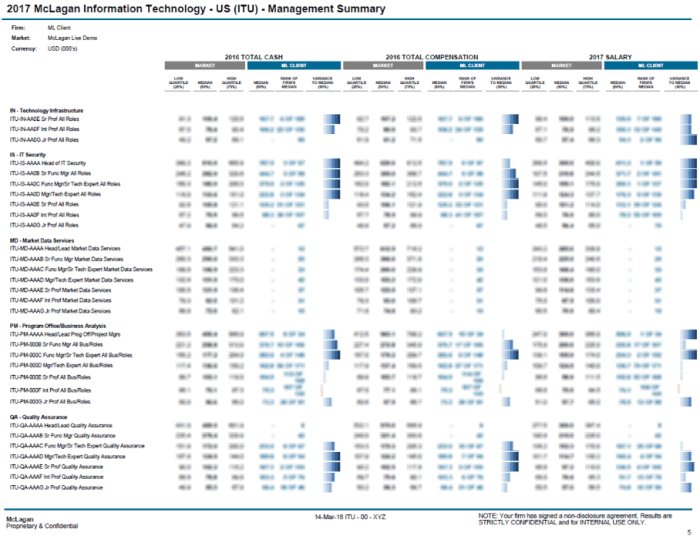In today’s dynamic business landscape, this causes compensation survey data to become obsolete fairly quickly, posing significant challenges for organizations seeking to maintain accurate and reliable compensation data. This article delves into the factors contributing to this rapid obsolescence, explores the challenges in maintaining up-to-date data, and discusses strategies for mitigating its impact on decision-making.
The volatility of the labor market, driven by industry shifts, technological advancements, and globalization, has a profound impact on compensation data. External factors such as economic conditions, inflation, and government regulations further contribute to the need for regular data updates.
Factors Contributing to Rapid Compensation Data Obsolescence

Compensation data can become obsolete quickly due to various factors that impact the labor market and drive changes in compensation structures. These factors include:
Changes in Industry Trends
- Shifting industry priorities and business models
- Emergence of new industries and technologies
- Declining or growing industries affecting job demand and compensation levels
Technology Advancements, This causes compensation survey data to become obsolete fairly quickly
- Automation and artificial intelligence replacing or augmenting human workers
- New skills and competencies required in the workforce
- Changes in job roles and responsibilities
Globalization
- Increased competition for talent from a global pool
- Offshoring and outsourcing of jobs to lower-cost regions
- Influx of foreign workers and impact on local compensation structures
Economic Conditions
- Economic growth or recession affecting overall compensation levels
- Inflation eroding the value of compensation over time
- Government regulations and policies impacting minimum wage, overtime pay, and benefits
Challenges in Maintaining Up-to-Date Compensation Data

Organizations face challenges in maintaining up-to-date compensation data due to several factors:
Data Collection
- Time-consuming and resource-intensive process
- Need for reliable and accurate data sources
- Challenges in collecting data from diverse employee populations
Data Analysis
- Complex and time-consuming to analyze large datasets
- Need for skilled analysts and statistical expertise
- Interpreting and understanding the results of data analysis
Data Updating
- Compensation data changes frequently, requiring regular updates
- Balancing the need for frequent updates with resource constraints
- Ensuring data consistency and comparability over time
External Compensation Surveys
- Limitations in accuracy and relevance due to differences in industry, location, and job roles
- Lag in data availability and may not reflect current market conditions
- Potential biases and distortions in survey data
Strategies for Mitigating Data Obsolescence

Organizations can mitigate the impact of rapid compensation data obsolescence through various strategies:
Survey Design and Implementation
- Using targeted surveys to gather specific and relevant data
- Conducting surveys more frequently to capture market changes
- Including questions that anticipate future compensation trends
Predictive Analytics and Forecasting
- Leveraging historical data and industry trends to predict future compensation levels
- Using statistical models and machine learning algorithms to forecast changes
- Combining internal and external data sources to enhance accuracy
Technology and Automation
- Using software and tools to automate data collection and analysis processes
- Integrating compensation data with other HR systems for real-time updates
- Streamlining data collection and analysis to reduce time and effort
Impact of Compensation Data Obsolescence on Decision-Making

Using outdated compensation data can have significant consequences for decision-making, including:
Setting Salaries
- Underpaying or overpaying employees compared to market value
- Creating inequities and dissatisfaction within the workforce
- Difficulty attracting and retaining top talent
Evaluating Performance
- Setting unrealistic or unfair performance goals based on outdated compensation expectations
- Bias in performance evaluations due to inaccurate compensation data
- Difficulty identifying high performers and rewarding them appropriately
Conducting Market Research
- Misrepresenting the true compensation landscape in the industry
- Making poor decisions based on inaccurate market data
- Losing competitive advantage in attracting and retaining talent
Query Resolution: This Causes Compensation Survey Data To Become Obsolete Fairly Quickly
Why is compensation survey data becoming obsolete so quickly?
Rapid changes in the labor market, such as industry shifts, technology advancements, and globalization, are driving the need for frequent compensation data updates.
What are the challenges in maintaining up-to-date compensation data?
Organizations face challenges in collecting, analyzing, and updating compensation data regularly, and the frequency and accuracy of data collection can impact its usefulness and reliability.
How can organizations mitigate compensation data obsolescence?
Organizations can mitigate data obsolescence by designing surveys that minimize the impact of rapid changes, using predictive analytics to anticipate future trends, and leveraging technology to streamline data collection and analysis processes.